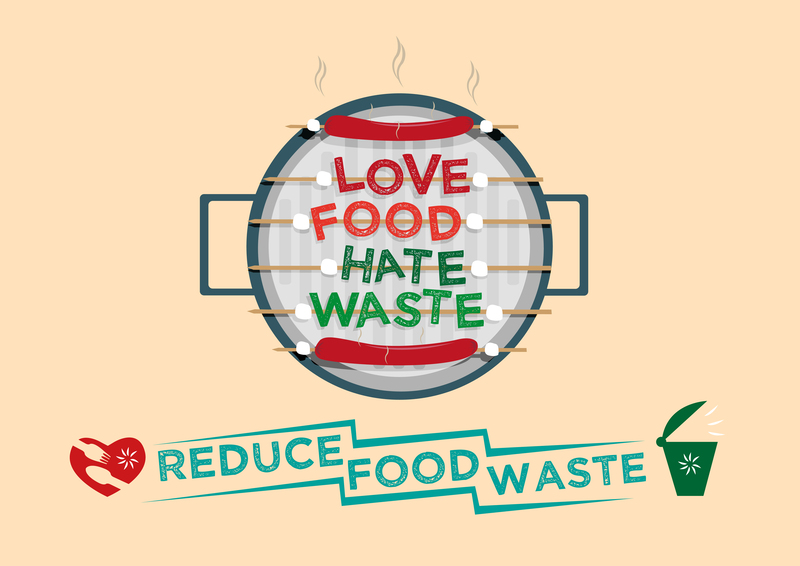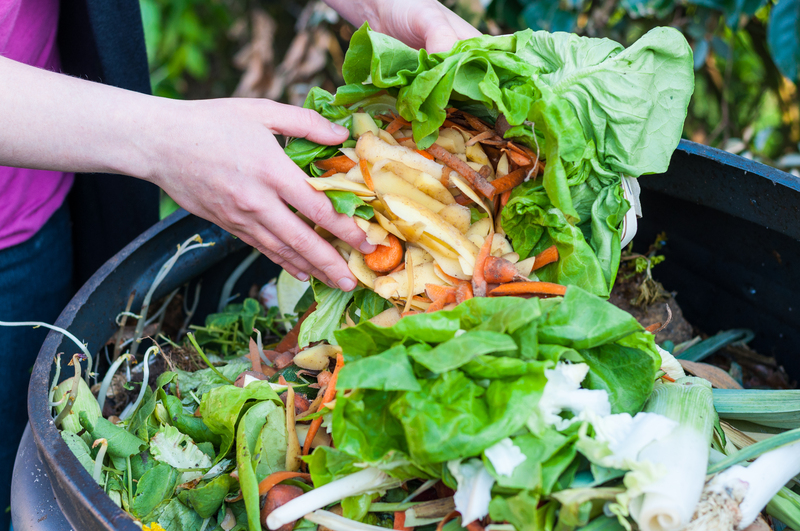Smart Solutions for Reducing Household Waste
In today's world, the issue of household waste management is more critical than ever. With rising populations and consumption patterns, our planet faces mounting pressure from excessive garbage. However, thanks to innovative smart solutions and eco-conscious living, there are numerous strategies available to dramatically minimize domestic waste. In this comprehensive guide, we'll explore science-backed, practical and actionable approaches to cutting down on your home's garbage output, making your lifestyle more sustainable and even saving you money.
Understanding the Problem: Why Focus on Household Waste?
Household waste reduction is vital for environmental conservation, reducing greenhouse gas emissions, and conserving landfills. The average family generates vast amounts of waste annually, much of which could be avoided, recycled, or composted. By adopting smart, innovative waste management methods, you not only do your part for the planet, but also inspire others around you to rethink their relationship with waste.
- Environmental Impact: Landfills are overflowing, and improper waste handling causes soil and water pollution.
- Economic Savings: Less waste means less money spent on trash bags, collection, and new products.
- Health Benefits: Reducing certain types of trash, like plastics and hazardous materials, improves household health.

Top Smart Solutions for Reducing Household Waste
Embracing innovative techniques and smart home technology can revolutionize the way you deal with everyday garbage. Let's look at the most effective strategies:
1. Conduct a Waste Audit
The first step to cutting down on household garbage is to know exactly what you're throwing away. Conduct a simple waste audit by collecting all trash for a week, categorizing it (food, plastics, paper, etc.), and identifying the main contributors. This will help you pinpoint which areas need the most attention.
- Data-Driven Decisions: Smart bins with sensors can track the type and amount of waste, giving real-time feedback.
- Targeted Action: Focus your efforts where they matter most, whether that's food scraps, packaging, or single-use products.
2. Smart Shopping: Reduce Waste Before It Starts
One of the most effective household waste solutions is controlling what enters your home in the first place.
- Buy in Bulk: Purchase in larger quantities to minimize packaging waste.
- Choose Reusables: Opt for products with minimal or compostable packaging. Bring your own bags, containers, and water bottles.
- Plan Meals: Make a weekly menu and shopping list to avoid impulse purchases and reduce food spoilage.
- Subscribe to Zero-Waste Stores: Consider using services that sell refillable or package-free goods delivered to your door.
3. Embracing Technology: Smart Bins and Apps
Digital innovation is making it easier than ever to manage, sort, and reduce household waste.
- Smart Trash Cans: These bins use sensors to detect fullness and send notifications when it's time to empty, helping optimize waste disposal and prevent overflow.
- Waste Sorting Apps: Smartphone apps use AI to scan items and suggest the proper bin (recycle, compost, landfill) -- perfect for educating kids and adults.
- Inventory Management: Apps that track your pantry reduce food waste by reminding you when items are nearing expiration.
4. Composting: Turn Scraps into Soil
Food waste is a major contributor to household trash. Composting is a smart solution for transforming organic waste into nutrient-rich soil, perfect for gardening.
- Traditional Backyard Composting: Ideal for those with gardens--use yard trimmings, vegetable peels, coffee grounds, and more.
- Countertop Composters: These electric devices are suitable for apartments, turning scraps into compost in hours.
- Community Composting: If home composting isn't possible, many cities now offer organic waste collection or community compost bins.
5. Recycle Smarter, Not Harder
Recycling can be confusing. With proper education and the right tools, you can ensure more of your home's recyclable waste is correctly processed.
- Use Local Guidelines: Always follow your local recycling program's instructions. What's recyclable varies widely!
- Clean Before You Recycle: Rinse containers so they aren't contaminated.
- Sort at the Source: Invest in clearly labeled bins for paper, plastic, metal, and glass.
- Leverage Smart Sorting: Explore smart recycling bins that use cameras and AI to sort items automatically.
6. Upcycle and Repurpose
Before tossing items, think creatively! Upcycling extends the life of objects and reduces waste generation.
- DIY Projects: Turn jars into storage, t-shirts into cleaning rags, and pallets into furniture.
- Repair Culture: Fix broken electronics, clothing, or furniture rather than discarding them.
- Exchange & Donate: Swap, sell or donate gently used items via online platforms or local charities.
7. Smart Food Management
Food is often the largest component of household trash. Digital tools, organizational skills, and savvy purchasing can substantially shrink your food waste problem:
- Inventory Tracking: Use apps to track what's in your fridge and pantry to avoid excess buying.
- First-In, First-Out Rule (FIFO): Organize foods by expiration date, using older products first.
- Smart Fridges: Some refrigerators have cameras and apps to manage expiry dates and suggest recipes based on what's inside.
- Cook and Freeze Leftovers: Portion and freeze extra food before it spoils.
8. Adopt Minimalist Principles
Minimalism isn't just a style--it's a smart lifestyle choice that helps reduce unnecessary household waste.
- Declutter Regularly: Assess what you own and donate or recycle excess items.
- Buy What You Need: Focus on quality over quantity to minimize replacement and packaging waste.
- Intentional Purchasing: Avoid trends--choose items that are durable, multi-use and made from sustainable materials.
Cutting-Edge Technology: The Future of Waste Reduction
The future of household waste reduction lies in the integration of new technologies and eco-smart systems:
- Artificial Intelligence and IoT: Smart bins and appliances communicate, monitor, and optimize your entire waste disposal process.
- Blockchain: Apps track the lifecycle of products, ensuring recyclables are properly processed.
- Smart Home Integration: Virtual assistants can remind you to take out the trash, vacuum with zero-waste cleaning robots, and order refillable supplies automatically.
- Automation: Municipalities are using robot-operated waste sorters and drones to monitor illegal dumping and landfill health.
Behavioral Change: The Human Side of Waste Management
Even the best technology needs people to change their daily habits. Cultivating an eco-conscious mindset is essential for long-term household waste solutions.
- Involve the Entire Family: Make waste sorting and composting a household activity. Teach kids about the impact of waste.
- Join Community Initiatives: Get involved in local clean-ups, zero-waste workshops, and recycling drives.
- Stay Informed: Follow sustainability blogs, join online groups, and stay up-to-date with best practices.
The Importance of Circular Economy at Home
Reducing domestic waste means thinking beyond one-time use. The circular economy model encourages reusing, repairing, and recycling to keep materials in use for as long as possible.
- Buy Circular: Look for products made from recycled or upcycled materials.
- Producer Responsibility: Support brands that take back old products for refurbishment or recycling.
- Share & Swap: Consider the sharing economy--borrow tools, rent party supplies, and swap kids' clothing instead of buying new.
Common Barriers and How to Overcome Them
Many people want to reduce home waste but face hurdles such as lack of time, confusion about local rules, or perceived inconvenience. Here's how to tackle them:
- Lack of Space: Use stackable bins, mini composters, and compact storage solutions for small homes or apartments.
- Confusion Over Recycling: Download your city's recycling app or keep a laminated guide on your fridge.
- Busy Lifestyles: Set reminders for waste disposal, and subscribe to services that automate sustainable products and pickups.
- Initial Cost: Many zero-waste options save money over time (e.g., reusable water bottles, cloth bags).
Tips for Staying Motivated on Your Waste Reduction Journey
- Track Your Progress: Use apps or a home waste log to monitor reduction over time.
- Set Achievable Goals: Aim to cut waste by 10% each month, or participate in challenges like "Plastic-Free July."
- Celebrate Milestones: Treat yourself (sustainably) when you reach your waste reduction targets!
Additional Smart Solutions and Resources
- Water-Saving Devices: Reduce hazardous waste created by cleaning chemicals by using smart, water-efficient fixtures.
- Energy-Efficient Appliances: Reduce the hidden "waste" of energy consumption, which often accompanies physical trash.
- Educational Platforms: Many nonprofits and local governments provide free resources and videos on proper waste management.
- Online Marketplaces: Connect with buyers for second-hand goods, preventing items from ending up in landfills.
Smart Solutions in Action: Case Studies
Case Study 1: The Tech-Savvy Minimalist Home
A family in California adopted smart waste bins, meal-tracking apps, and a strict buy-nothing-new policy for one year. By year's end, their trash output dropped by 70%, and they saved approximately $2,500 by upcycling, buying in bulk, and cutting food wastage through better meal planning.
Case Study 2: Urban Apartment Living
An urban couple uses stackable bins for efficient recycling, a countertop composter, and participates in a neighborhood item-swap group. Not only do they divert most of their waste from landfills, but they've also built a sense of community and exchanged valuable goods, services, and tips with neighbors.
Conclusion: Be the Change for a Cleaner Future
Adopting smart solutions for reducing household waste can seem daunting at first, but with the right tools, a little planning, and a committed mindset, any household can make a decisive, positive impact. From embracing digital waste-management tools to upcycling unused items and composting your kitchen scraps, each small change multiplies to create meaningful results.
Remember, every piece of waste you prevent, recycle, or compost is a step towards a healthier planet. Start today, and inspire others to join you on the journey to a zero-waste, sustainable lifestyle!

Frequently Asked Questions (FAQs)
What is the best way to start reducing my household waste?
Start with a waste audit to identify your biggest sources of garbage. Focus first on reducing single-use plastics and food waste, as these are typically the largest contributors.
Are there affordable smart technologies for home waste management?
Absolutely! Many basic apps are free. Affordable smart bins and composters are available at various price points, and their long-term savings often outweigh initial costs.
Does reducing household waste really make a difference?
Yes! Small changes collectively have a massive impact on landfill usage, pollution, and resource conservation. One average household's annual waste reduction could eliminate hundreds of pounds of trash.
Recommended Reading & Resources
Ready to revolutionize your approach to waste? Try implementing just one or two of these smart solutions this week and watch your household waste shrink, your wallet grow, and your conscience rest easy!